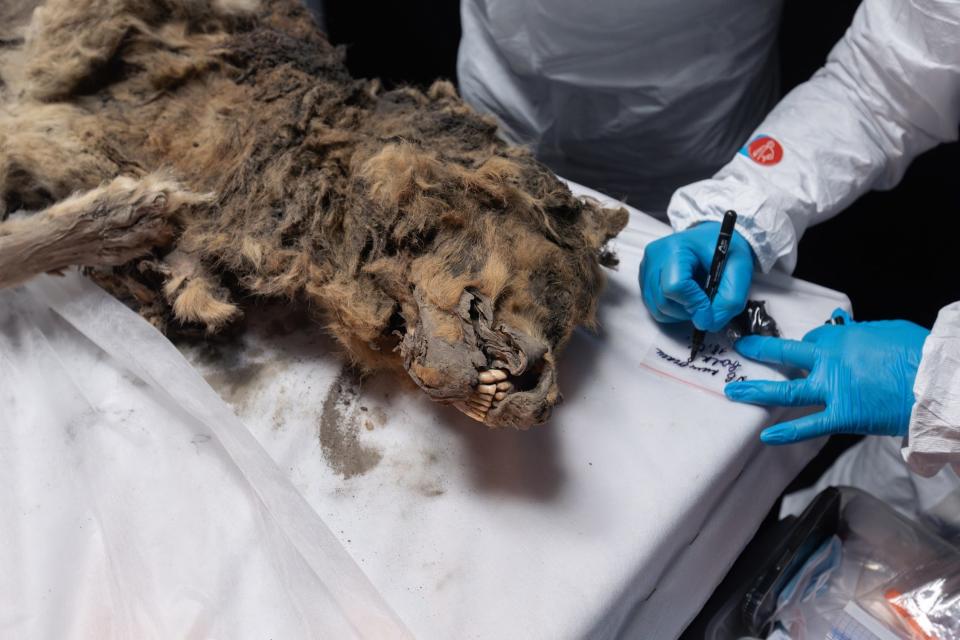“Hearst Magazines and Yahoo may earn commission or revenue on some items through these links.”
-
The fifth state of matter—the ultracold Bose-Einstein condensate (BEC)—has been an invaluable tool in unlocking the secrets of quantum physics.
-
Now, scientists from Columbia University have created a molecular sodium-cesium BEC that’s dipolar, which opens the door for dozens of exotic matter applications.
-
To achieve this breakthrough, the research team leveraged two microwave fields to create the BEC, which lasts a full two seconds (a pretty long time in quantum physics research).
In the mid-1920s, two absolute giants in the world of physics, Satyendra Nath Bose and Albert Einstein, theorized the existence of a strange quantum state of matter that’d eventually be named in their honor: the Bose-Einstein condensate (BEC). The 20th century luminaries figured that if particles were cooled to ultracold temperatures—mere fractions of degrees away from absolute zero (-459.67 °F)—and kept at low densities, they’d form an indistinguishable whole.
Fast-forward some 70 years later, scientists from the University of Colorado at Boulder proved Einstein and Bose correct. Since then, BECs have been a vital tool for exploring the quantum properties of atoms, and a series of advancements—whether getting the particles even cooler or getting them to form diatomic molecules—have made them more and more useful in the search for the underlying physics that governs the universe.
Now, physicists from Columbia University—in collaboration with Radboud University in the Netherlands—took the next step of this century-long BEC journey by creating a sodium-cesium condensate that’s only five nanoKelvin above absolute zero. While that’s an impressively cold temperature, the most important part of this impressive piece of experimental physics is that the resulting BEC is dipolar, meaning it has both a positive and a negative charge. The team utilized a previously peer-reviewed technique that uses microwaves to cross “the BEC threshold,” according to a press statement. The results of this study were published this week in the journal Nature.
“By controlling these dipolar interactions, we hope to create new quantum states and phases of matter,” Columbia postdoc Ian Stevenson, a co-author of the study, said in a press statement.
Microwaves are usually associated with heating things up, but study collaborator Tijs Karman from Radboud University suggested that microwaves can act like shields and essentially protect molecules from lossy collisions while hot molecules are removed from a sample, which has an overall cooling effect. The team tried the microwave technique in 2023, but this new study added a second microwave field that proved more effective at creating the desired BEC.
“We really have a good idea of the interactions in this system, which is also critical for the next steps, like exploring dipolar many-body physics,” Karman, who was also a co-author of the study, said in a press statement. “We’ve come up with schemes to control interactions, tested these in theory, and implemented them in the experiment. It’s been really an amazing experience to see these ideas for microwave ‘shielding’ being realized in the lab.”
The creation of this dipolar BEC opens the door to the creation of many other forms of exotic matter, such as “exotic dipolar droplets, self-organized crystal phases, and dipolar spin liquids in optical lattices,” according to the paper. But those are only a few of the dozens of possible applications that this new BEC could help realize. Because this experiment enables precise control over quantum interactions—according to Jun Ye, an ultracold scientist at UC-Boulder—the impacts on quantum chemistry could also be pretty profound.
The universe’s little-known fifth state of matter continues to surprise us more than a century after its startling introduction into the known world of physics.
You Might Also Like
Signup bonus from





